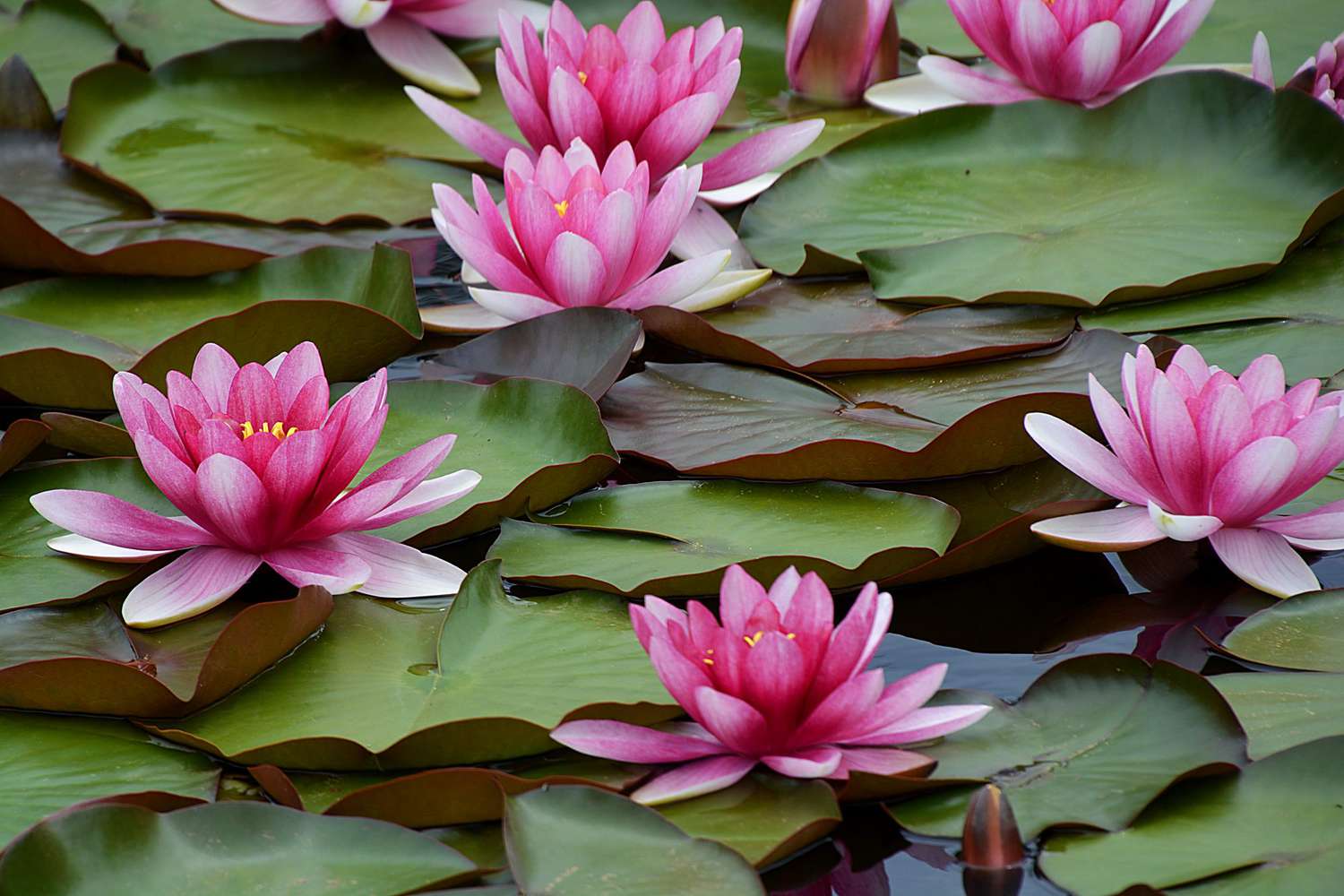Adding water lilies to your backyard pond or other natural water feature can enhance its beauty and ecological health. Their colorful blooms and lush leaves create a serene focal point while providing shade and shelter for fish and frogs. Water lilies also aid in filtering pond water. With a few key supplies and proper technique, planting these aquatic gems in your pond is simple.
Choose the Right Location
Select an appropriate spot along the edge of your pond for planting water lilies. Consider these factors:
-
Sunlight – Lilies thrive with 4-6 hours of direct sun daily. Sheltered coves likely won’t suffice
-
Depth – Plant in 1-2 feet of water initially. As leaves reach the surface, pots can be moved deeper, ideally 2-4 feet.
-
Access – Pick a spot you can reach easily for fertilizing and repotting when needed.
-
Spacing – Allow ample room between lilies depending on size. Aim for 4-6 feet between large varieties.
Use Proper Planting Tools
Having the right tools makes installing water lilies easier. Be sure to have:
-
Aquatic plant pot (1 per lily) – 5-9 gallon pots work well depending on plant size
-
Potting soil formulated for aquatic plants
-
Gravel or pea pebbles to encase the pot
-
Potted, bare-root water lily plant ordered for your growing zone
-
Water lily fertilizer tablets to promote vigorous blooms
-
Optional: aquatic planting media as extra root protection
Follow Key Planting Steps
Once your spot is selected and supplies gathered, planting water lilies is a cinch:
-
Fill pot 3/4 full with aquatic soil. Compress lightly.
-
Lay tuber/rhizome horizontally in soil. Buds should point upward with growing tip exposed.
-
Cover tuber and soil surface with a thin layer of gravel or optional planting media.
-
Insert 2-3 fertilizer tablets evenly into soil around tuber.
-
Submerge entire pot at an angle until it fills fully with water.
-
Initially place in 1-2 feet of water. Gradually reposition to 2-4 feet depth as leaves reach the surface.
Provide Proper Year-Round Care
A bit of seasonal upkeep keeps water lilies flourishing:
Spring – Divide crowded lilies into smaller pots every 2-3 years for best growth.
Summer – Fertilize pots regularly, every 2-4 weeks, for lush leaves and prolific blooms.
Fall – Trim back foliage and remove dead leaves after first frost.
Winter – In cold climates, move pots to deepest area of pond and stop fertilizing until spring.
Troubleshooting Issues
With attentive care, water lilies are relatively trouble-free. But here are some fixes for potential problems:
-
Leggy growth – Reposition pot for proper sun exposure based on variety.
-
Minimal blooms – Fertilize more consistently and divide overcrowded tubers.
-
Torn leaves – Place protective barrier around pots to shield from fish.
-
Dead leaves – Prune away damaged growth and ensure adequate nutrients and sun.
Tips for Optimal Results
Follow these recommendations to successfully grow vibrant water lilies:
-
Pick color varieties that complement your pond’s surroundings.
-
Group pots together for a concentrated bloom area versus sporadic placement.
-
Mix heights and leave sizes for layered interest.
-
Move pots progressively deeper as leaves enlarge to keep the plant aligned to the water surface.
-
Remove spent flowers regularly to promote new buds.
With the right location, tools, and a bit of attentive care, adding water lilies can infuse your pond with natural beauty. Their colorful blossoms and graceful foliage make them a quintessential addition to enhance any water feature.
Care of Lilies : Planting Instructions for Water Lily Pond Plants
FAQ
How to plant water lily in a pond?
Will water lilies take over a pond?
Do water lilies have to be planted in soil?
What kills water lilies in a pond?
How do you grow lilies in a pond?
Cover the roots of the plant with soil until only the crown of the plant is visible at the surface of the soil. Hardy lilies prefer a depth of 18-30 inches whilst tropical lilies prefer shallower water. Slowly lower the pot into your pond or sluggish stream, ensuring the leaves and flowers remain above the surface of the water.
How do I plant a water lily?
Lilies are shipped bare root to promote the best growth. Gravel or Pebbles (Optional): These can be used to top your media and help conceal the pot in your pond. As you assess what you need, make sure to order your supplies along with or ahead of the water lily itself. This way, you can start planting as soon as your lily arrives.
Do water lilies need a pond?
And you don’t need a pond for growing water lilies; they’ll thrive in a big tub on your patio. If you’re new to water lilies or short on space, try growing them in a tub (it’ll feel more manageable than an entire pond of water lilies). Keep these aquatic plants contained in ponds and pots.
How to grow water lilies?
If you’re new to gardening, don’t worry. Growing water lilies is a simple process, and you only need a few things to start: Water Lily Pot : Choose a five-gallon pot for one water lily or a nine-gallon pot for two water lilies. Aquatic Planting Soil: Use 10-pounds for one water lily or 20-pounds for two water lilies.
- A Complete Guide to Caring for Yuki Cherry Blossom Shrub - January 23, 2025
- Identifying Red Hot Poker Seeds: What to Look For When Harvesting Torch Lily Pods - January 23, 2025
- A Complete Guide to Harvesting Evening Primrose Seeds - January 23, 2025

